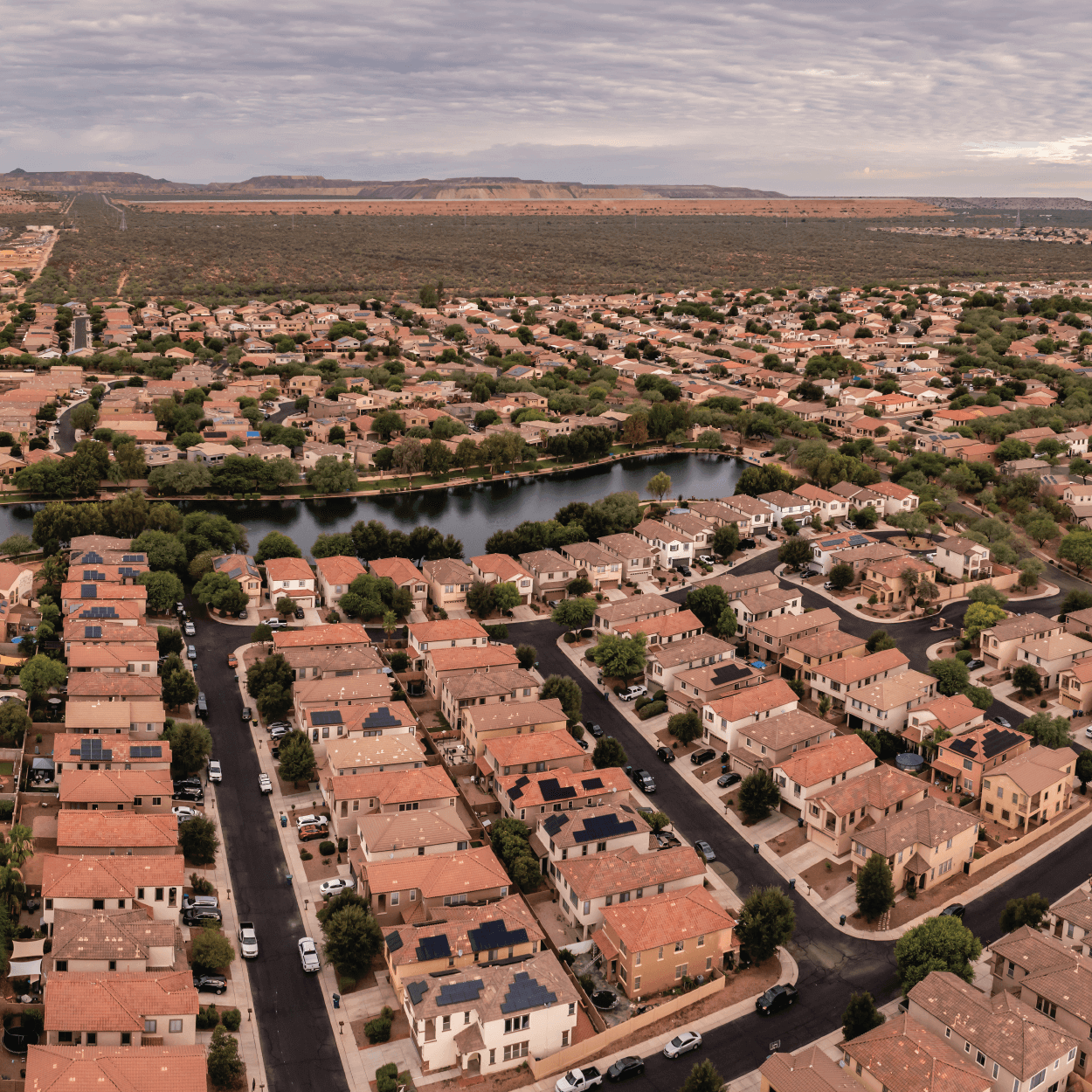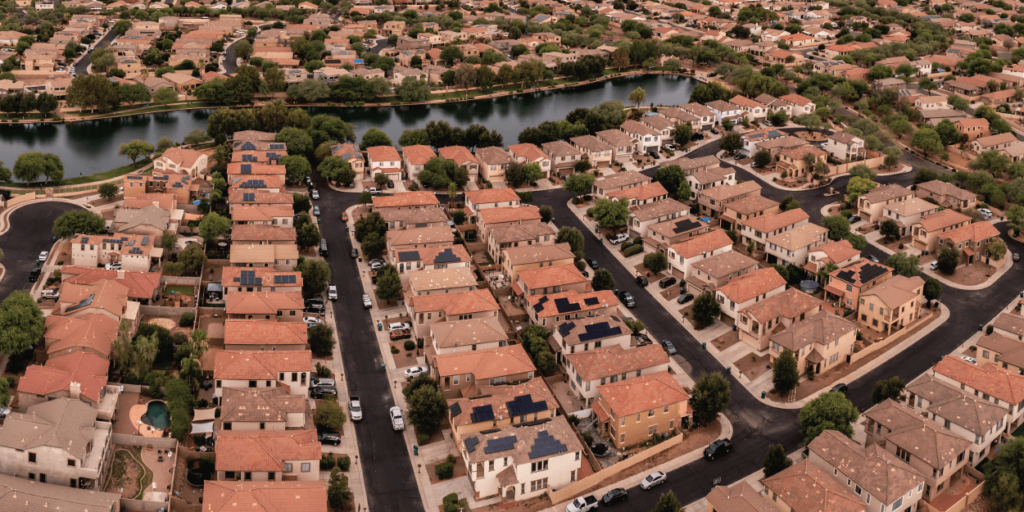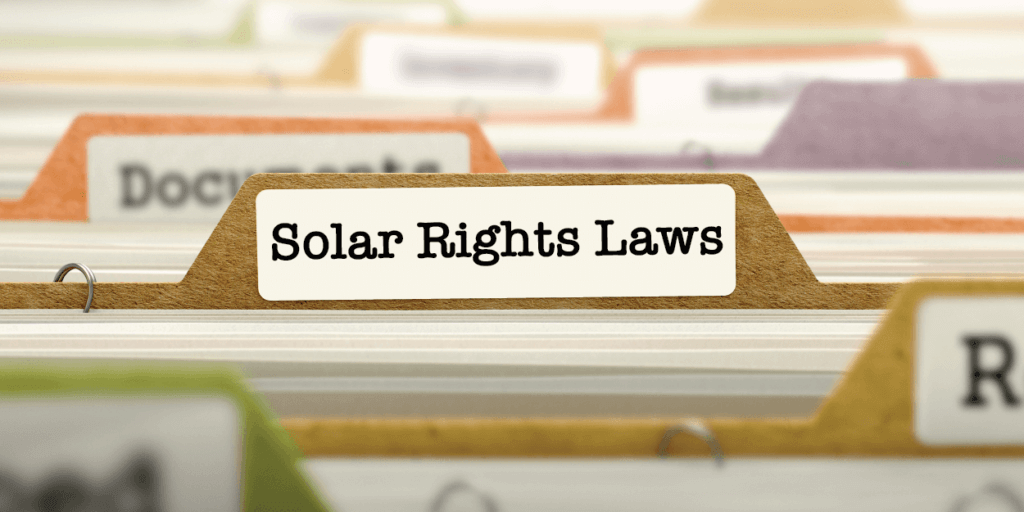
We’ve seen it before: You’re excited by the idea of going solar, and as you’re researching the benefits, long-term savings, and positive environmental impacts, you hear about someone’s negative experience with their homeowners’ association (HOA). Your excitement fades as you realize there may be HOA requirements and restrictions related to installing rooftop solar panels in your area, and you’re suddenly concerned—or maybe deflated—because you’re unsure if your HOA will restrict rooftop solar power.
Here’s how this dynamic—HOAs and residential solar—works and how to best navigate your journey toward embracing solar-powered energy.

Installing Solar Panels in an HOA Community
Can an HOA decide if you, as a homeowner, can add solar panels to your home? The short answer is (usually) no. However, the explanation as to why is more complicated.
An HOA exists to define and enforce rules in a particular community which homeowners must follow to maintain the standards and to protect property values. These restrictions often include guidelines around the installation and use of solar panels. The legal documents which outline these rules and regulations are called Covenants, Conditions, and Restrictions (CC&Rs) and are usually created by the developer of the community and are recorded with the county recorder’s office.
In response to HOAs restricting homeowners’ ability to install solar panels, many states have established solar access laws to help protect your solar power rights. These laws can limit the restrictions an HOA can place on solar installations. Related laws, sometimes referred to as solar easements are agreements which ensure your right to sunlight is not obstructed by trees or structures on neighboring properties.
If you find yourself at odds with an HOA not allowing solar panel installations or use, do not despair. Blue Raven Solar handles the HOA review and approval process for all of its customers. Generally, across the U.S., state and local laws are becoming more supportive of alternative, clean energy solutions like solar power.
Some states allow HOAs to govern the location or types of solar panels but not outright prohibit them. For example, in Illinois, an HOA may restrict where you place your solar panels, but only if it doesn’t reduce expected production by 10% or more.
While an HOA may not have the authority to fully restrict the installation of solar panels, it may specify certain conditions or requirements such as:
- Legal and Safety Violations related to solar energy devices which are deemed illegal or violate public health and safety regulations.
- Common Property in cases where the solar panels are located on common or shared property within the subdivision.
- Roofline and Aesthetics if the solar panels extend higher than the roofline, do not conform to the slope of the roof, or are not parallel to the roofline.
It’s important to review your HOA’s guidelines and your state’s specific laws to understand any potential restrictions or exceptions which may apply to your situation. We explore solar access laws, solar easements, and the HOA approval process in greater detail below.

State Solar Access Laws
Solar access laws, also sometimes known as solar rights laws, are legal provisions which protect individual homeowners’ rights to access sunlight and produce solar electricity. These laws are enforced at various levels—state, county, or city—and primarily aim to prevent HOAs from denying the installation of solar panel systems.
Solar access laws usually address these areas:
- Protection of Solar Rights: Solar access laws allow homeowners the right to install and use solar panels on their properties. They limit the restrictions which can be placed by HOAs and local governments on solar installations.
- State-Level Enforcement: There are no federal solar access laws in the United States of America as of 2023. Instead, these laws are controlled at the state, county, or city level, depending on your geographical location.
- Installation and Use: These laws are designed to prevent building and zoning regulations from impeding the installation and operation of solar energy systems.
- Variability: The specifics of solar access laws can vary significantly from one state to another, with some states having more robust protections.
For example, in Colorado, solar access laws state “HOAs allow installation of renewable energy generation devices.” In Nevada, the Solar Easements and Rights Law limits the ability of HOAs and local governments to restrict solar installations. If you are curious about what solar energy protections your state has defined (or not), you can start with this comprehensive reference.
If you live in a state without statewide solar access laws, your local city or county governments also have the authority to adopt policies to encourage or support solar energy adoption. It’s important to check the specific laws in your state or locality, as they can change and may have unique provisions.
The experts at Blue Raven Solar know the laws and requirements in these states and can answer your questions as they work through your specific HOA approval process.
Solar Easements
A solar easement is a legal agreement between property owners which allows one property owner to access sunlight which falls on another property. The agreement is voluntary and must be in writing and filed with local officials, such as a town or county clerk. Solar easements are typically used to protect a homeowner’s access to sunlight for a solar energy system. The easement can restrict a neighbor’s right to encroach on your sunshine by limiting the height of any structures or plants which could shade your solar panels.
In most cases, a solar easement must include a description of both properties, provisions of the agreement, and a description of restrictions on the height of any structures or plants. It should also include specifications of the dimensions and vertical and horizontal angles of the space which must remain open to sunlight. Solar easements are legally binding and enforceable by the HOA as defined in the CC&Rs. It is important to note the specifics of a solar easement can vary depending on the state and community.

HOA Approval Process for Solar Panel Installation
How do you get permission from your HOA to install solar panels? The HOA approval process varies depending on the community and is a set of procedures homeowners must follow to make changes to their property. In general, homeowners must submit an application to the HOA board or a designated committee for review and approval. The application typically includes detailed plans and specifications of the proposed changes. The board or committee then reviews the application and determines whether the proposed changes align with the community’s rules and regulations.
If the board approves the application, the homeowner can proceed with the changes. If the board denies the application, the homeowner can appeal the decision or modify the plans to meet the community’s standards (in most cases).
Navigating My HOA with Solar Experts
Blue Raven Solar has an entire division devoted to helping you navigate HOA rules and regulations backed by an experienced legal team. They can help answer your questions, understand the requirements and restrictions, and ensure your rooftop installation meets your specific community standards.
HOAs should not prevent you from making the switch to clean, renewable energy. Blue Raven Solar will guide you through each step of the installation process, including the submission for approval to all state, local, and community governing bodies.
Get a free solar estimate today!



Sorry, the comment form is closed at this time.